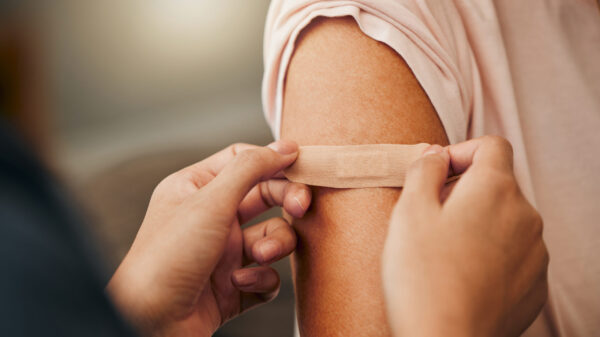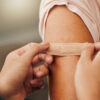The Alabama Department of Public Health reported Tuesday that 23 more citizens of the state have died from COVID-19 — the latest setback for a state that had been optimistic about reopening the economy.
The losses bring the state’s death toll to 854. At least 224 Alabamians have died during June alone.
{{CODE1}}
While many states have seen a decline in new coronavirus cases, the virus has surged in Alabama during June. The state reported 639 additional cases Tuesday.
{{CODE2}}
As of Tuesday, at least 30,670 people have tested positive for the coronavirus. Through May 31, 17,952 Alabamians had been diagnosed with the novel strain of the coronavirus, SARS-CoV-2.
In just the first 23 days of June, 12,718 cases have been diagnosed in the state — roughly 41 percent of the state’s total cumulative case count. Only 6,069 cases were diagnosed in April while the state was under a shelter in place order. That order was lifted on April 30. 10,884 cases were diagnosed in May while the state began reopening the economy in phases.
[visual-link-preview encoded=”eyJ0eXBlIjoiaW50ZXJuYWwiLCJwb3N0Ijo4MzEwOSwicG9zdF9sYWJlbCI6IlBhZ2UgODMxMDkgLSBNYXBwaW5nIENPVklELTE5IGluIEFsYWJhbWEiLCJ1cmwiOiIiLCJpbWFnZV9pZCI6ODczMTEsImltYWdlX3VybCI6Imh0dHBzOi8vd3d3LmFscmVwb3J0ZXIuY29tL3dwLWNvbnRlbnQvdXBsb2Fkcy8yMDIwLzA0L0Fkb2JlU3RvY2tfMzM0NDI3OTI4LTEwMDB4NjAwLmpwZWciLCJ0aXRsZSI6Ik1hcHBpbmcgQ09WSUQtMTkgaW4gQWxhYmFtYSIsInN1bW1hcnkiOiJXZSBhcmUgdHJhY2tpbmcgdGhlIHBhbmRlbWljIG9uIG91ciBkYXRhIGFuZCBtYXBwaW5nIGRhc2hib2FyZC4iLCJ0ZW1wbGF0ZSI6InVzZV9kZWZhdWx0X2Zyb21fc2V0dGluZ3MifQ==”]
In just 23 days, June has already surpassed May’s totals. The top six days for new coronavirus cases all occurred in June, with the state’s single highest day total for coronavirus new cases at 1,014 being set on June 14.
At least 353,611 Alabamians have been tested for the virus — or 7.2 percent of the state’s population.
Alabama is still under a safer at home order. If you do not need to leave your home, do not leave your home. When you do go out remember to socially distance, wear a mask, avoid crowds, don’t shake hands or hug anyone, wash your hands frequently and don’t touch your face.
“As the COVID-19 pandemic continues, the Centers for Disease Control and Prevention (CDC) emphasizes the critical importance of maintaining 6-feet social distancing and has recommended wearing cloth face coverings in public when physical distancing is difficult to maintain,” said State Public Health Office Scott Harris. “Studies illustrate how COVID-19 can be spread through speaking, coughing, and sneezing — including by asymptomatic people. This is especially important in Alabama where we are experiencing significant community transmission.”
“Face coverings are simply barrier protections that make a barrier between your face and the air around you,” Harris said. “Face coverings prevent you from spreading respiratory droplets and can prevent you from acquiring the virus from others. Making this practice a habit can help keep your family, co-workers, and community safe. This is the simplest act of kindness you can take for your community, especially those who are at high risk of contracting the virus.”
“Cloth face coverings can help slow the spread of COVID-19 when combined with everyday preventive actions and social distancing in public settings,” Harris continued. “The only segments of our population who should not use them are children under age 2, anyone who has trouble breathing, is unconscious, incapacitated or otherwise unable to remove the face covering without assistance. If persons feel ill when wearing them, they should properly remove the face covering and get fresh air. Ongoing problems with wearing a face covering should be discussed with the person’s healthcare provider.”
There are fears from public health authorities that many Alabamians will congregate in large gatherings over the 4th of July holiday.
Globally, 5,465 people perished on Tuesday from COVID-19, including 863 Americans. The pandemic’s death toll has reached 479,816 people. 162,994 more people were diagnosed on Tuesday alone with rapidly increasing cases in Latin America and India.


















































